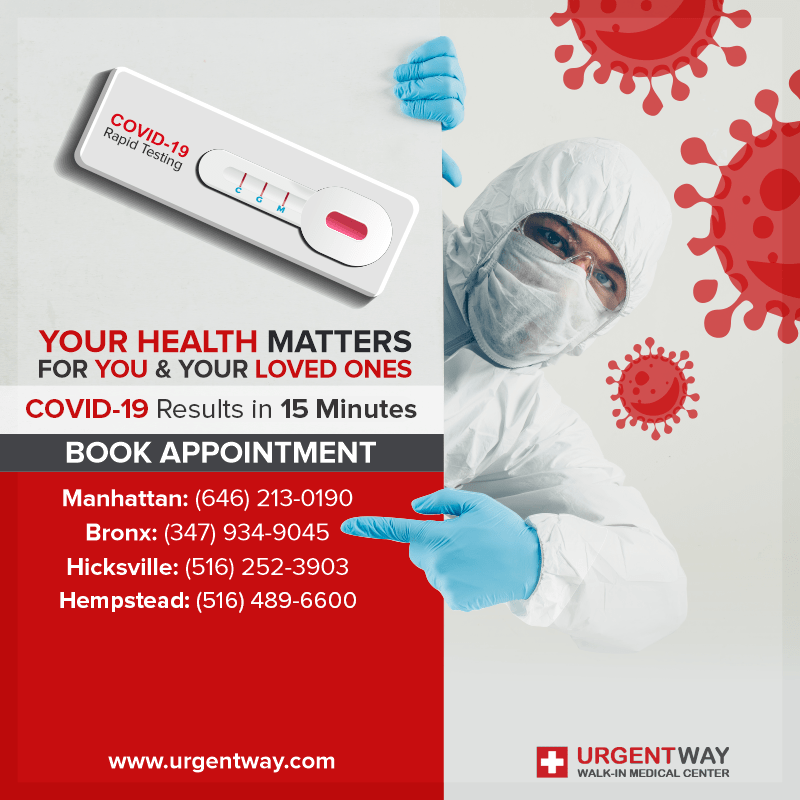Here’s the good news: When it comes to receiving medical care, consumers now have more options than ever before. Gone are the days of waiting to get an appointment with your primary care physician, or, when that fails, heading to the emergency room with a minor ear infection, and then being hit with a horrendous bill.
The not-so-good news is that many consumers are not taking advantage of these other treatment options because they are confused by the services offered at each. In this article, we’ll take a look at the very popular Minute Clinic and discuss whether or not this is considered urgent care.
What is a Minute Clinic?
A Minute Clinic is a retail clinic that offers certain medical services through CVS Health. Usually, you can find these clinics within the CVS retail stores near the pharmacy area. These clinics offer convenience to consumers who come in with minor illnesses and injuries. Some may also offer preventative measures including vaccinations and health screenings.
Minute Clinics Benefits
Minute Clinics offer consumers many benefits. To start, they offer flexible hours, making it easy for people to visit when it’s convenient for them. They are open seven days a week, 365 days a year. For people who work Monday through Friday, or just have limited free time, this convenience is priceless.
These clinics are sometimes called “walk-in” clinics because you can simply walk in and be seen. No appointment is necessary. And wait times are typically very short, in fact, as little as 15 or 20 minutes. You don’t get seen that quickly in your doctor’s office or an emergency room.
At a Minute Clinic, you will likely be seen by a physician’s assistant or a nurse practitioner. They will be able to order tests, take your medical history, and prescribe medications.
As for cost, Minute Clinics are much more affordable than emergency rooms and often more affordable than a visit to your own doctor, who may charge an office visit fee of $100 to $300 right off the bat. To check the pricing of a Minute Clinic near you, call them to ask or check the published Price List at the CVS site. Prices are also posted at each clinic.
This transparent pricing means consumers are never shocked when they receive the bill. To fully understand what you can expect to pay out-of-pocket, contact your insurance provider and ask which services are covered by your plan.
Minute Clinic Drawbacks
As convenient as these clinics are, they treat a small and limited list of minor illnesses, which we covered previously. You wouldn’t, for example, go to a Minute Clinic with a cut finger or a broken ankle.
And, though nurse practitioners and physician assistants are competent medical professionals, it is sometimes necessary to be seen by a board-certified physician.
Finally, there is limited equipment in these clinics. There are no X-ray machines, lab testing, or CT scans.
But is a Minute Clinic the Same Thing as an Urgent Care Clinic?
No, Minute Clinics are a form of “convenient care,” and as such, are far more limited in the services they can offer. Urgent care clinics offer more services for more serious illnesses and conditions.
While they are certainly equipped to treat the same minor illnesses as Minute Clinics, such as colds, flu, strep throat, and sinus infections; they are equipped to treat more acute illnesses and injuries such as deep cuts and broken bones.
Another difference between Minute Clinics and urgent care clinics is that urgent care clinics have not only nurse practitioners and physician assistants on staff, but they also have one or two board-certified physicians on staff as well.
While urgent care clinics are beyond the scope of Minute Clinics, they do offer some of the same benefits, namely no appointment is required, wait times are also typically 20 minutes or less, and the services offered are much more affordable than a trip to the ER or even your own doctor. And, with most urgent care facilities open 7 days a week, 365 days a year, including extended hours, they allow busy people to get the treatment they need when they need it.
Beyond wound care and setting broken bones, urgent care clinics can treat:
- Swollen Glands
- Sprains
- Rash
- Wheezing
- Throat Issues
- Minor Abdominal Pain
- Headache
- Ear Pain
They also offer preventative care and offer:
- Vaccinations and flu shots
- Gynecologic exams
- Drug screenings
- DOT Physical Exam
- Immigration Medical Exam
In short, urgent care clinics can offer everything a Minute Clinic can and much, much more. Only those with life-threatening illnesses should seek treatment from an emergency room, otherwise, an urgent care clinic will be able to provide the medical treatment you need when you need it.
Urgent Way is open 365 days of the year and has locations in Hempstead, Brooklyn, Queens, Staten Island, Hicksville, and the Bronx. We accept most insurance plans, including worker’s compensation, private insurance, Medicaid, and Medicare, but also welcome those without insurance. We always do our best to offer the most affordable rates and payment options to our patients.
Feel free to stop into any one of our locations, or call and speak with one of our staff.


